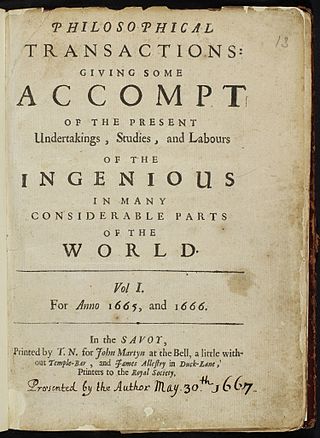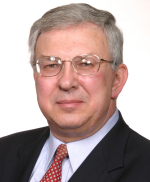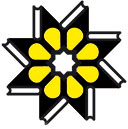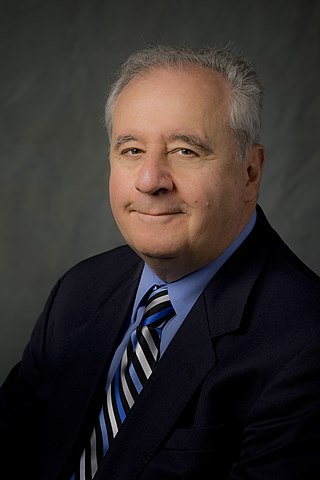Related Research Articles

Scientific literature comprises academic papers that report original empirical and theoretical work in the natural and social sciences. Within a field of research, relevant papers are often referred to as "the literature". Academic publishing is the process of contributing the results of one's research into the literature, which often requires a peer-review process.

The American Society of Civil Engineers (ASCE) is a tax-exempt professional body founded in 1852 to represent members of the civil engineering profession worldwide. Headquartered in Reston, Virginia, it is the oldest national engineering society in the United States. Its constitution was based on the older Boston Society of Civil Engineers from 1848.

Henry Petroski is an American engineer specializing in failure analysis. A professor both of civil engineering and history at Duke University, he is also a prolific author. Petroski has written over a dozen books – beginning with To Engineer is Human: The Role of Failure in Successful Design (1985) and including a number of titles detailing the industrial design history of common, everyday objects, such as pencils, paper clips, toothpicks, and silverware. His first book was made into the film When Engineering Fails. He is a frequent lecturer and a columnist for the magazines American Scientist and Prism.

The Society of Petroleum Engineers (SPE) is a 501(c)(3) not-for-profit professional organization whose stated mission is "To connect a global community of engineers, scientists, and related energy professionals to exchange knowledge, innovate, and advance their technical and professional competence regarding the exploration, development, and production of oil and gas and related energy resources to achieve a safe, secure, and sustainable energy future."
SPIE is an international not-for-profit professional society for optics and photonics technology, founded in 1955. It organizes technical conferences, trade exhibitions, and continuing education programs for researchers and developers in the light-based fields of physics, including: optics, photonics, and imaging engineering. The society publishes peer-reviewed scientific journals, conference proceedings, monographs, tutorial texts, field guides, and reference volumes in print and online. SPIE is especially well-known for Photonics West, one of the laser and photonics industry's largest combined conferences and tradeshows which is held annually in San Francisco. SPIE also participates as partners in leading educational initiatives, and in 2020, for example, provided more than $5.8 million in support of optics education and outreach programs around the world.

A concrete canoe is a canoe made of concrete, typically created for an engineering competition.
A bibliographic database is a database of bibliographic records, an organized digital collection of references to published literature, including journal and newspaper articles, conference proceedings, reports, government and legal publications, patents, books, etc. In contrast to library catalogue entries, a large proportion of the bibliographic records in bibliographic databases describe articles, conference papers, etc., rather than complete monographs, and they generally contain very rich subject descriptions in the form of keywords, subject classification terms, or abstracts.
The Society of Allied Weight Engineers (SAWE) is a professional society of engineers that pertains to the specific field of Mass Properties.
CSA was a division of Cambridge Information Group and provider of online databases, based in Bethesda, Maryland before merging with ProQuest of Ann Arbor, Michigan in 2007. CSA hosted databases of abstracts and developed taxonomic indexing of scholarly articles. These databases were hosted on the CSA Illumina platform and were available alongside add-on products like CSA Illustrata. The company produced numerous bibliographic databases in different fields of the arts and humanities, natural and social sciences, and technology. Thus, coverage included materials science, environmental sciences and pollution management, biological sciences, aquatic sciences and fisheries, biotechnology, engineering, computer science, sociology, linguistics, and other areas.
The Journal of Environmental Engineering is a monthly engineering journal published by the American Society of Civil Engineers.

An infiltration basin is a form of engineered sump or percolation pond that is used to manage stormwater runoff, prevent flooding and downstream erosion, and improve water quality in an adjacent river, stream, lake or bay. It is essentially a shallow artificial pond that is designed to infiltrate stormwater through permeable soils into the groundwater aquifer. Infiltration basins do not release water except by infiltration, evaporation or emergency overflow during flood conditions.
Bilal M. Ayyub is a researcher in risk analysis and reliability engineering. He has been a professor of civil and environmental engineering at the University of Maryland, College Park (UMD) since 1983, and is also the director of the Center for Technology and Systems Management at its A. James Clark School of Engineering.
The Civil Engineering Body of Knowledge is a body of knowledge, set forth in a proposal by the American Society of Civil Engineers (ASCE) entitled Civil Engineering Body of Knowledge for the 21st century. This proposal seeks to identify and implement improvements to the education and licensure process for civil engineers in the United States of America. The proposal is intended to increase occupational closure by increasing the requirements to become a licensed engineer. Some have identified this joint effort with the Raising the Bar as not necessary.
IEEE Xplore digital library is a research database for discovery and access to journal articles, conference proceedings, technical standards, and related materials on computer science, electrical engineering and electronics, and allied fields. It contains material published mainly by the Institute of Electrical and Electronics Engineers (IEEE) and other partner publishers. IEEE Xplore provides web access to more than 5 million documents from publications in computer science, electrical engineering, electronics and allied fields. Its documents and other materials comprise more than 300 peer-reviewed journals, more than 1,900 global conferences, more than 11,000 technical standards, almost 5,000 ebooks, and over 500 online courses. Approximately 20,000 new documents are added each month. Anyone can search IEEE Xplore and find bibliographic records and abstracts for its contents, while access to full-text documents may require an individual or institutional subscription.

Regional Information Center for Science and Technology (RICeST) is an Iranian governmental organisation established to promote the production and distribution of scientific information in Iran and Islamic countries, providing reference, study and bibliographical information and related services. It also undertakes scientometrics based on its databases of scientific products of Iran and Islamic countries.

Dan Mircea Frangopol is an American civil engineer and the inaugural holder of the Fazlur R. Khan Endowed Chair of Structural Engineering and Architecture at Lehigh University, Bethlehem, Pennsylvania.
The International Structural Engineering and Construction Society (ISEC) is a non-profit professional body founded in 2001 to represent members of the civil engineering, structural engineering, and construction engineering profession worldwide. Based in Fargo, North Dakota, it offers educational conferences, seminars, and literature through an international network of advisors and regional representatives.

Medhat Haroun was an Egyptian-American expert on earthquake engineering. He wrote more than 300 technical papers and received the Charles Martin Duke Lifeline Earthquake Engineering Award (2006) and the Walter Huber Civil Engineering Research Prize (1992) from the American Society of Civil Engineers.
The Journal of Engineering Mechanics is a peer-reviewed scientific journal published by the American Society of Civil Engineers, and covers activity and development in the field of applied mechanics as it relates to civil engineering. Published papers typically describe the development and implementation of new analytical models, innovative numerical methods, and novel experimental methods and results.
The Civil Engineering Database (CEDB) was created in 1994, and is maintained by American Society of Civil Engineers (ASCE). It is a free bibliographic database, containing 270,000-entries, for all ASCE publications including journals, conference proceedings, books, standards, manuals, magazines, and newspapers on all the disciplines of civil engineering. The coverage dates back to 1872.
References
- ↑ "ASCE Library (ASCE)". ascelibrary.org. Retrieved 12 March 2014.
- ↑ "University of Michigan Library". lib.umich.edu. Retrieved 12 March 2014.
- ↑ "ASCE Library". docstoc.com. Retrieved 12 March 2014.
- ↑ Matylonek, John. "Journal Reviews and Reports". istl.org. Retrieved 12 March 2014.
- ↑ University of California Merced 4 October 2017]
- ↑ Curren Associates proceedings.com 11 October 2017